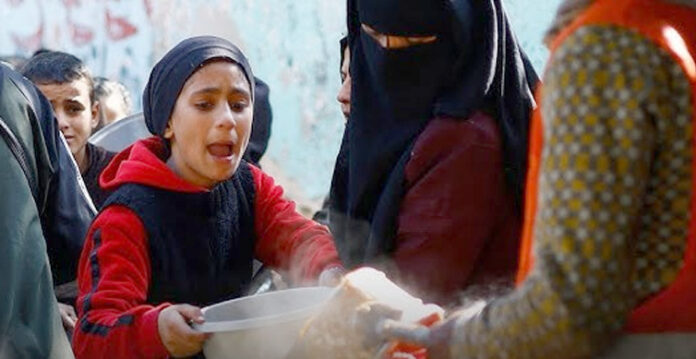In today’s world, food security remains one of the most pressing yet often overlooked challenges. Amidst global crises like cyber fraud, corruption, transnational terrorism, and regional conflicts such as the West Asian turmoil and the ongoing Ukraine-Russia war, food security faces an uphill battle. This issue is exacerbated by environmental degradation, the refugee crisis, and increasing natural disasters, which have only intensified food insecurity.
Food security, as defined by the United Nations’ Food and Agriculture Organization (FAO), is when “all people, at all times, have physical and economic access to sufficient, safe, and nutritious food that meets their dietary needs and food preferences for an active and healthy life.” This definition emphasizes both the availability and economic accessibility of food, alongside its nutritional quality. Sadly, current statistics paint a grim picture: over half of the population in low-income countries lives in food insecurity, with about one-third facing severe crises. Globally, approximately 789 million people are deprived of adequate food, and this number climbs to an alarming 2.4 billion when micronutrient deficiencies are taken into account.
The problem can be categorized into two main issues: quantity and quality. Key challenges include food availability, price volatility, inclusive access, proper utilization, and stability. Price volatility, in particular, exacerbates the situation in low-income nations, where many lack the resources to access nutritious food. As the world grapples with these issues, food security has become central to international policy. The United Nations recognized this urgency by including food security as one of its 17 Sustainable Development Goals (SDGs) under the 2030 Agenda.
Also Read: Turkey Engages with Russia and Ukraine to End Global Food Crisis
In 2015, SDG 2 was established to “end hunger, achieve food security and improved nutrition, and promote sustainable agriculture,” with complementary goals like SDG 6 (ensuring sustainable water management) and SDG 12 (promoting sustainable consumption and production). These goals urge governments to align food and agriculture policies with the aim of ensuring that populations worldwide receive sufficient and nutritious food, sustainably.
The consequences of food insecurity are severe and reach beyond hunger. At the household level, it has been linked to problems such as poor sleep patterns and weakened immune systems. The United Nations reaffirmed its commitment to addressing food access and nutrition during the 2012 UN Conference on Sustainable Development, which saw the launch of the ‘Zero Hunger Challenge’ (ZHC), aiming to eliminate global hunger and malnutrition by 2030. A core tenet of the ZHC is to make “all food systems sustainable,” including clean water, responsible food consumption, and climate action—goals achievable through national policies and international cooperation.
India’s strides in food security since independence highlight the role of agricultural research institutions like the Indian Agricultural Research Institute (ICAR). These advancements in genetic engineering and biotechnology hold promise for overcoming agricultural challenges, enhancing food quality, and boosting global food availability. Despite concerns regarding the safety of genetically modified organisms (GMOs), global institutions like the World Bank emphasize the importance of proper handling and regulation.
Biotechnology presents a transformative potential in the fight against global food insecurity. It offers solutions for improving food production, reducing pollution, generating jobs, and driving economic growth. Such innovations could foster international cooperation, promote peace, and help reduce global tensions. However, there are concerns that biotechnology could widen the gap between developed and developing nations or threaten indigenous food industries due to globalization.
While these challenges remain significant, the potential benefits of biotechnology in addressing food security cannot be overlooked. For global food and energy systems to improve, food security initiatives must rise above geopolitical rivalries. The emphasis must be on inclusivity, cooperation, and shared responsibilities. India, with its focus on inclusive diplomacy, has the potential to lead this global effort, harnessing biotechnology to transform food systems and improve security for future generations.
As the world moves forward, the importance of food security and the role of sustainable agricultural practices and biotechnology will only grow. The global community must continue to collaborate to ensure that no one is left behind in the fight against hunger and malnutrition.
(This story is sourced from a third-party syndicated feed. Raavi Media takes no responsibility or liability of any nature. Raavi Media management/ythisnews.com can alter or delete the content without notice for any reason.)


